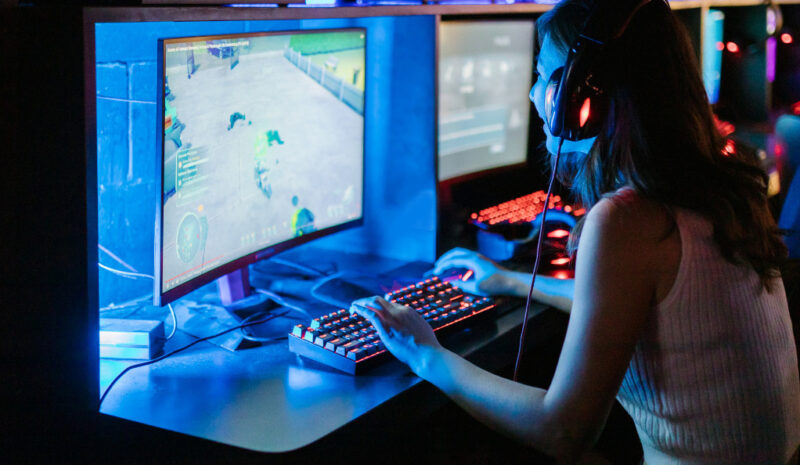The gaming industry has been one of the fastest-growing industries worldwide. It has evolved significantly, from video games and computer games to mobile games. However, with the emergence of blockchain technology, the gaming industry is undergoing a major transformation. Blockchain technology is set to revolutionize the gaming industry by providing a new and improved way of gaming. This article explores how traditional gaming and blockchain technology are bridged, and the prospects and challenges of integrating blockchain in gaming.

Bridging Traditional Gaming and Blockchain Technology
The integration of blockchain technology in gaming has created a new era of gaming. Blockchain technology enables gamers to own and control in-game assets, making it possible to trade them with other gamers. This feature is not available in traditional gaming, where players do not own their in-game assets. In traditional gaming, players have to rely on centralized gaming servers, which can be vulnerable to hacking and other security breaches. On the other hand, blockchain technology offers decentralization, making it difficult for hackers to manipulate the game or steal player’s data.
Blockchain technology is also making it possible for gamers to earn cryptocurrency by playing games. Game developers can integrate cryptocurrencies into their games, creating an incentive for players to participate and earn rewards. This feature has the potential to attract more gamers to blockchain gaming, leading to growth in the industry.
Prospects and Challenges of Integrating Blockchain in Gaming
The integration of blockchain technology in gaming presents several prospects and challenges. One of the prospects is the possibility of creating a new gaming economy, where gamers can earn a living by playing games and trading in-game assets. Blockchain technology can make this possible by providing a secure and transparent platform for trading in-game assets.
However, there are also several challenges associated with integrating blockchain technology in gaming. One of the challenges is the high cost of blockchain-based gaming. Developing a blockchain-based game requires a significant amount of resources, from programmers to hardware equipment. This cost can discourage game developers from creating blockchain-based games, limiting the growth of the industry.
Another challenge is the lack of a regulatory framework. The gaming industry is highly regulated, and the integration of blockchain technology presents regulatory challenges. Governments and regulatory bodies around the world are still trying to understand blockchain technology, and it may take some time before a regulatory framework is put in place.
The integration of blockchain technology in gaming is still in its early stages, but it presents a promising future for the gaming industry. The ability to own and control in-game assets, earn cryptocurrency, and create a new gaming economy are some of the prospects of integrating blockchain in gaming. However, the high cost of developing blockchain-based games and the lack of regulatory framework are some of the challenges that need to be addressed. As the industry continues to evolve, it will be interesting to see how traditional gaming and blockchain technology continue to bridge.
ChesWorkShop commits to presenting fair and reliable information on subjects including cryptocurrency, finance, trading, and stocks. However, we do not have the capacity to offer financial guidance, advocating instead for users to conduct their own diligent research.
